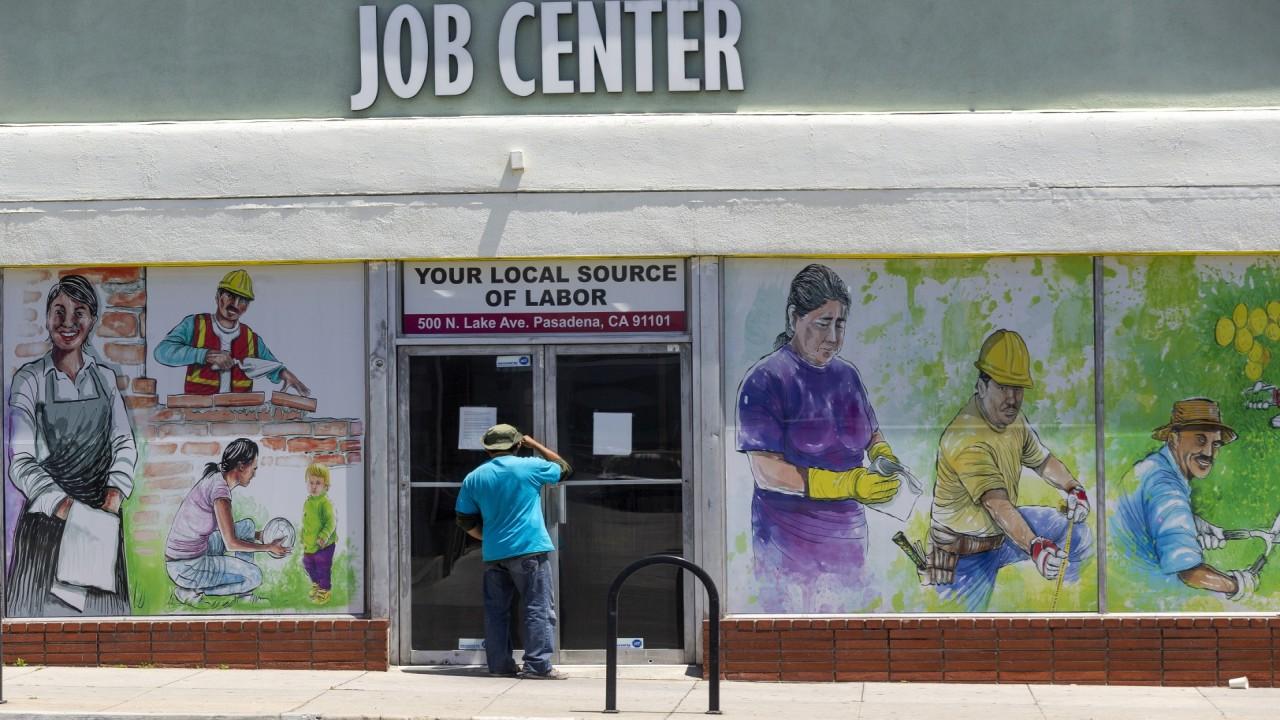How to recover financially from coronavirus pandemic
'Rely on yourself, not government,' said financial expert Chris Hogan
Financial expert Chris Hogan on Thursday offered tips for people trying to recover financially from the coronavirus pandemic.
His advice comes on the heels of 1.48 million people filing jobless claims in the week through June 20, according to the Labor Department. The number was 60,000 fewer than the week before, reflecting the reopening of businesses across the country as states continue to ease restrictions. Since mid-March, when lockdowns were implemented, about 47 million Americans have filed for unemployment benefits.
WILL AMERICANS GET A SECOND CORONAVIRUS STIMULUS CHECK? YOUR TOP QUESTIONS ANSWERED
Hogan said for those trying to get back on track don’t rely on government handouts.
“People are getting back to work, but we don’t want to get back to normal, we need to get back to better,” Hogan said during an appearance on “Fox & Friends.” “I know the government is talking about a lot of stimulus checks and a lot of ideas, but we have to rely on ourselves to save the day, not wait on the government to send us more money.”
Hogan also encouraged people to avoid frivolous spending, acknowledging that it is easy to overspend.
“The typical American is spending around $18,000 on nonessentials so it’s really important for us to take control of our money and be in what I call ‘conserve mode,’” Hogan said. “That means you want to be very intentional with money and not do any unnecessary spending right now.”
When asked for an example of what people spend too much on Hogan said: “food.”
Hogan said he used to spend $300 to $400 a week on food and “was shopping out of habit, not necessity.”
“I would encourage people to look at what you have in your pantry, be intentional with meal planning and also be careful with online shopping, with one click can you have some boxes show up and that could throw off your budget,” Hogan explained.
Hogan’s third tip is to refresh your financial goals.
FED WARNS ECONOMIC DAMAGE FROM CORONAVIRUS PANDEMIC COULD BE 'QUITE PERSISTENT'
“The biggest regret coming out of this COVID-19 was that people said they regretted not having enough in an emergency fund,” Hogan noted. “Look at your goals, be intentional about getting out of debt if you have it,"
Hogan also encouraged people to get on a budget and do "better with your planning for your money.”
Lastly, Hogan said that this presents a chance for people to put themselves in a position to make better financial decisions.
“I have talked to a lot of people that have said they were so fearful over their financial situation during COVID-19 that they’re saying, ‘never again,’” Hogan explained.
“‘Never again am I going to have to make a decision between putting food on the table or keeping the lights on’ and I think this is a perfect opportunity for people to harness those emotions and say, ‘You know what? I’m going to get better moving forward out of this. I’m going to work my money the right way. I’m going to follow a plan that works.""
GET FOX BUSINESS ON THE GO BY CLICKING HERE
FOX Business’ James Langford contributed to this report.






















